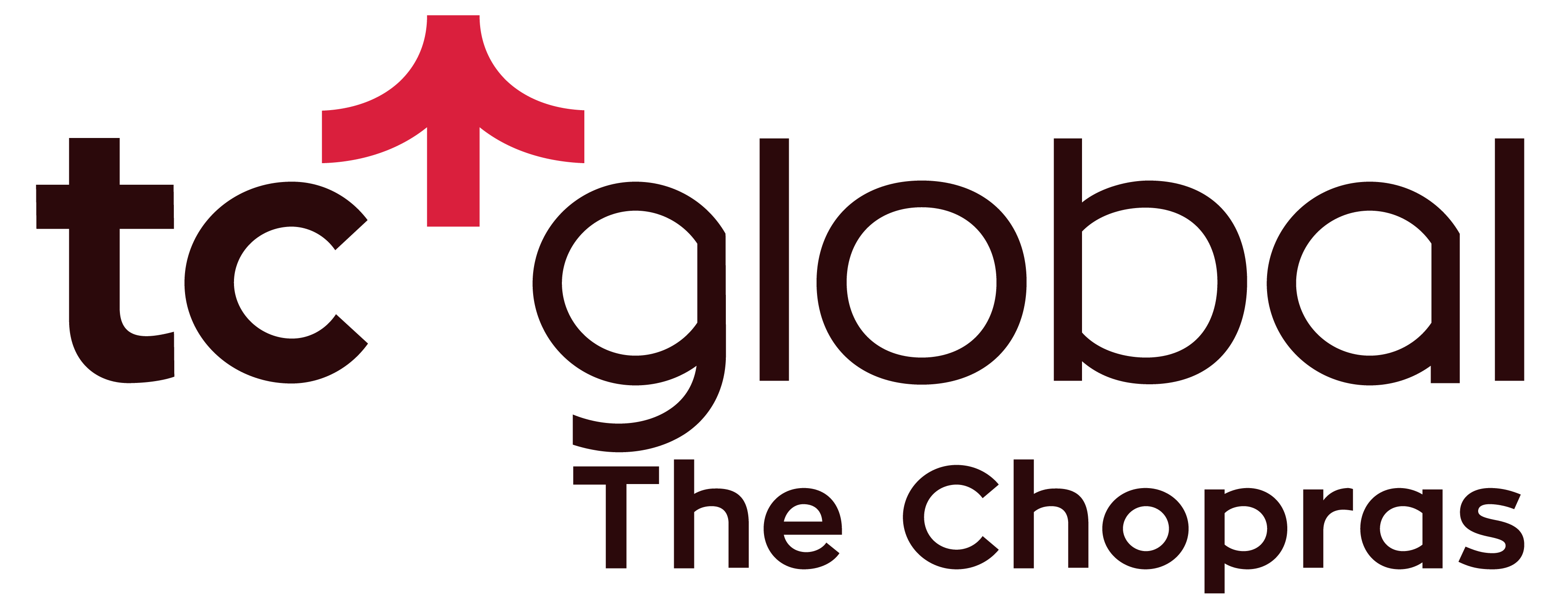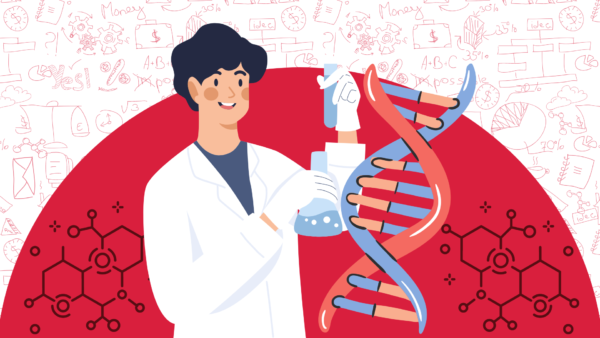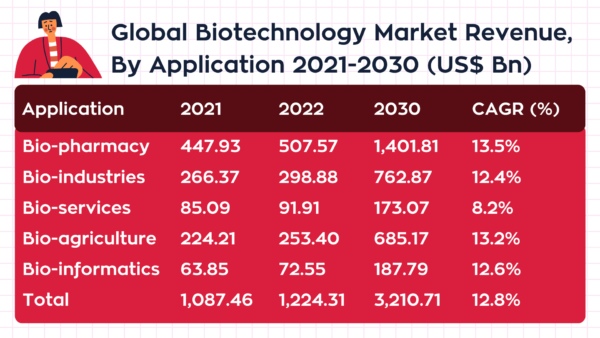Biotechnology is a field that has vast applications in pharma, agriculture, food sciences, nutrition, sustainability and so on. Technological advancements such as Machine Learning and AI are also playing a significant role in pushing the boundaries of nano-biotech and molecular bio-tech.

The entire industry functions at the cusp of innovation. Since the development of the COVID vaccines, there have been numerous other developments in the field in 2022 and 2023. Here are some of the biotech trends that we foresee in the coming year.
1. Synthetic biology:
In simple terms, it is where we have the ability to redesign partly or completely genomes or biological systems for more useful purposes. The designing of xenobots, engineering microbial synthesis to deal with environmental plastic waste, or developing genetically modified fibre crops to create sustainable waterproof materials are just some of the examples of advancements in the field in recent times. Environmental biotechnology has developed as a separate branch of biotech to help improve agricultural practices, create sustainable biofuels, improve soil health and overall reduce pollutants that are contributing to the climate crisis.
2. Bioprinting:
There have also been tremendous developments in the area of bioprinting to fabricate biomedical parts that can imitate natural tissue. As a result, one can foresee huge developments in stem cell technology. In simple terms, stem cells have the unique ability to differentiate into other cell types and are the key to cell therapy and regenerative medicine. With tissue engineering and bioprinting, and the other developments in stem cell technology, life science professionals are now working towards organ transplants and tissue grafts without donors.
3. Precision Medicine
will soon allow doctors across the globe to tailor medication and treatments for individuals based on their genetic make-up, lifestyle or even other factors, vastly reducing the risks of treatment. The global market projection for personalized medicine is expected to cross $869 billion by 2031. While the opportunities are immense, it is not without challenges. Issues with data privacy, consent, and ethical considerations are to be worked around carefully. Cutting edge technologies like artificial intelligence and machine learning can be integrated with biotech to enhance treatment recommendations and predictive models. In conjunction, regulatory agencies like the FDA will be required to streamline testing processes to enable quicker commercialization of the latest technologies.
4. Gene Editing and sequencing:
At the core of its development lies gene editing with CRISPR technology. Clustered Regularly Interspaced Short Palindromic Repeats (or CRISPR) has originally been a part of bacterial defence mechanisms. Today, we have the technology to use it as a precision tool for editing genes in various organisms, including humans. With future developments, CRISPR tech can be used to develop treatments and interventions for complex ailments such as heart disease, Alzheimer’s, and autoimmune disorders. Eventually, this technology can cause paradigm shifts in our understanding of oncology as well.
5. BioTech and Big Data:
As with other industries, the biotech sector will also become data-driven. Be it pharmaceutical companies, predictive analysis, gene editing, AI-powered diagnostics or drug development, analysis of big datasets will provide crucial insights for future breakthroughs in the biotech industry. “Pharma will keep closing the digital transformation gap,” predicts Alister Campbell of Dotmatics. “Life science companies will start to see the fruits of digitalization as they increase the use of drug repurposing, making it easier to navigate the swaths of data that have previously been locked away in silos, unlocking the potential of drugs that have been shown to be safe but missed initial clinical endpoints.” (Source: Bio-ITWorld)
6. AI in Drug Discovery:
Towards the end of 2023, the phrase AI in drug discovery became a buzzword, with AI-powered technology and machine learning assisting research carried out by biotech companies. These new drugs have gone till the clinical trial phase, despite shortage of data. In 2024, the role of AI in the pharma industry is bound to be more discerning with the use of ML algorithms that can facilitate the design of precise drug molecules or optimization of automation. In addition, this tech is being used by biotech startups and research scientists for biomarker discovery which can open new pathways for early disease detection and treatment response monitoring.
7. Growth of biopharma:
2024 will also see the biopharma segment transforming biotech. As opposed to conventional pharma, biopharma involves the study and the process of deriving agents such as monoclonal antibodies, vaccines, and gene therapies that can change the course of treatment.



















